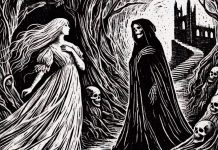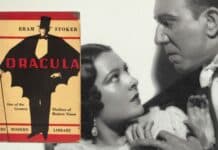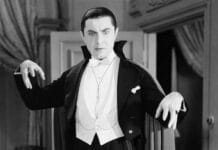ANDREW GARVEY looks at Bram Stoker’s surprising non-Dracula-writing activities
We, of course, know him best as the author of Dracula, arguably the most influential horror story ever written.
But even well before it’s 1897 publication, Bram Stoker was a well-known figure.
This week, we look at just a few of the other things he got up to, as reported in the newspapers of the day.
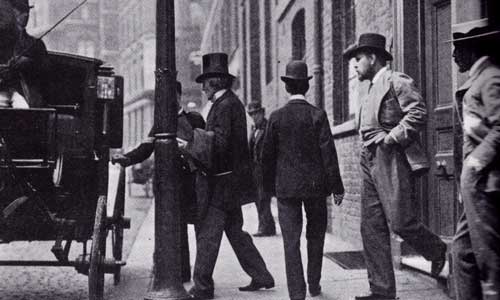
The publication of his short story collection, Under the Sunset, prompted the Freeman’s Journal of 12th November 1881 to, quite poetically gush that:
“It is in short a beautiful book in every way… as kind, and genial, and thoughtful to our children as Mr. Bram Stoker has ever known how to be. The honest ring of his voice is almost audible from the words as they lay quiet on the paper… the writer let himself slip back into the vast unlimited world of fiction where happy children dwell and bask in the peace of entire innocence…”
Not exactly Dracula, then?
Bram Stoker, business manager of Lyceum Theatre
When not writing, Stoker was best known as the personal assistant to one of the day’s most revered actors, Henry Irving, and as business manager of Irving’s Lyceum Theatre in London.
The Era, a newspaper which heavily featured stage news and information, reported on 11th December 1886 that Stoker, in his capacity as Irving’s manager, was honoured by the Columbia Club which “includes among its operations those of sick, loan and burial funds” for London’s poor”.
Modestly claiming his support of the organisation was entirely due to Irving, Stoker is also warmly praised in the article for his “gallant attempt to save a drowning man in the Thames about a couple of years back.” Bram Stoker – humanitarian and fine, upstanding citizen.
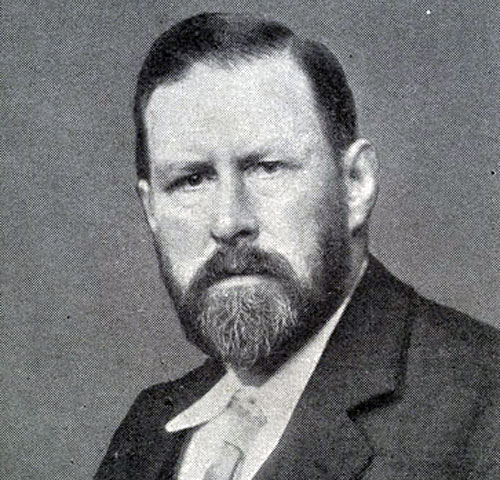
A decade after his 1912 death, Stoker’s family successfully sued the makers of Nosferatu, an unauthorised film adaptation of his most famous novel and now regarded as one of the greatest horror films of all time.
The family’s concern over copyright may have been inspired by Stoker himself who took a keen interest in the issue.
On Thursday 8th July 1897, Stoker appeared before a House of Lords committee to give evidence on the Copyright Law Amendment Bill.
Noting his role as theatre manager, Stoker (as reported in the London Daily News two days later) said it was “a common and increasing practice for dramatists to take plot, dialogue and incidents from copyright novels… he was not opposed to the dramatisation of novels… [but] he was in favour of the right of the author to say who should dramatise his work.” Stoker – speaking up for the ripped-off and the plagiarised”.
Stoker, the traveller
Stoker famously based his descriptions of Transylvania for Dracula on books and documents he read from the comfort of the British Library but he wasn’t averse to foreign travel, nor to talking about his experiences abroad.
The 29th December 1885 issue of the London Daily News gave a lengthy review of Stoker’s London Institution lecture ‘Personal Impressions of America.’
Stoker lamented even educated Englishman’s ignorance of a country so like their own, discussed America’s extremes of weather, the vastness of the hotels, the conditions and pay of domestic servants, the clothing of the working classes, the late night operations of a fire station called into emergency action, the comparatively (with England, at least) equal status of women in American society. He also noted that in America, the word ‘politician’ “had fallen very low” and unless proven otherwise “was a man whom it was perhaps as well not to trust too much.” Bram Stoker – the Victorian Bill Bryson?
Clearly, Stoker, that most influential of Spooky Victorians was a man of many, many talents.


